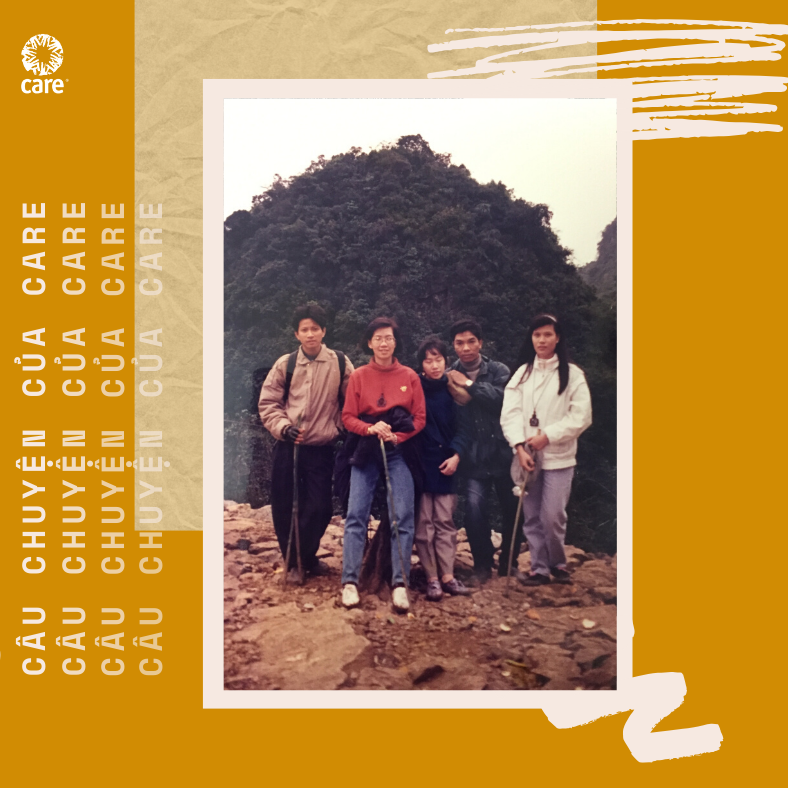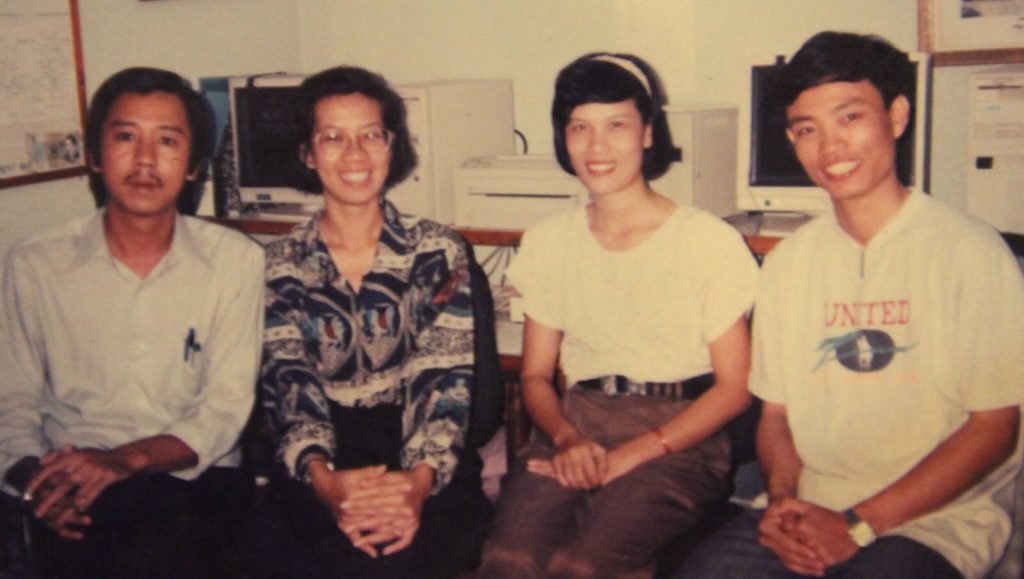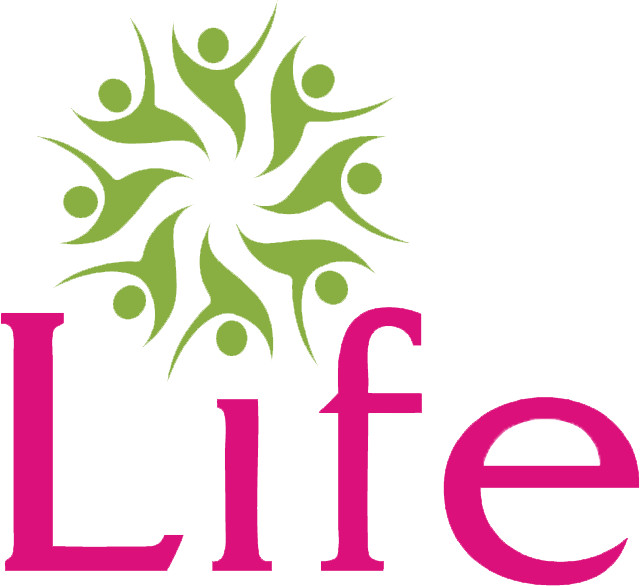As a project officer, I travel regularly for work. Most of our projects are carried out in remote areas where people live in poor conditions, lacking both physical facilities and spritual resources. When I tell my friends about my job, they often say, “I never want such hard work no matter how high the salary is”. Yet some other friends are envious of me and say, “You are so lucky; it’s like travelling [for holiday] without any cost”. Personally, I do not care what they think. I love my current job and find it interesting to live and work with people in need in rural areas.

Nguyen Nguyen Nhu Trang (second from left) while working at CARE office in Ho Chi Minh City. Photo: CARE in Vietnam archive
There was this time during a field trip when we evaluated the Forestry Project in Ha Bac, a northern mountainous province 60 km away from Hanoi. To ensure the objectivity of the evaluation, we invited several officers from other organisations to participate. Before “marching on”, we all received two-day training on “Participatory Rapid Appraisal” (PRA) to collect information effectively. We “dropped off” at the appointed location and were taken to a villager’s home where we stayed for two and a half days. Our careful preparation for this trip gave us great confidence. After settling down, we began to work immediately.
A day of PRA typically begins in the early morning with work allocation for each member. We then dispersed to do our own task. Each of us had a companion whom we called “Information Officer”, a very important role. They were both our guides and interpreters (when we worked with people from ethnic minorities who don’t speak Vietnamese). Before it became too dark, we tried to return to the accommodation to copy the information collected during the day on large white paper sheets. This information was presented at a community meeting in the evening to get feedback from local people. Sometimes a meeting did not end until ten o’clock at night, at which point we were all exhausted. However, the fatigue did not last long. Surrounding us, the mountains and forests seemed more majestic and massive at night. The breeze filled our lungs and somewhere the streams murmured. None of us could ignore such a sight. During this moment of solitude, someone suggested to bring food and drinks to the banks of the stream to “party”. We then carried drinks, candies, watermelon, and knives while tiptoeing out of the house as if we were thieves for fear of waking the hosts up. We sat on the biggest stone slab and dropped our feet into the water as we ate and chatted. Our stories were first about work we had done during the day. We shared experiences and interesting stories when interacting with the people there. After that, the atmosphere became became calm and intimate as we reflected on numerous things. Some stories are only evoked in such circumstances. On moonlit nights, we spread out mats which were used to dry rice in the yard, contemplated the moon, counted stars, read poetry and sang to each other. We could never have such “luxurious” entertainment living in the city. Stories circulated until late at night. Nobody felt like sleeping, but the group leader reminded us that there was a lot of work waiting for us the next morning.

Nguyen Nguyen Nhu Trang (second from left) while working at CARE office in Ho Chi Minh City. Photo: CARE in Vietnam archive
Our days working in the village were effective and valuable. For me, PRA trips like this are rewarding and interesting. The PRA method helps us gather information with a high degree of accuracy and reliability, and every place we have visited has its own unique characteristics and leaves us with unforgettable memories. I make new friends after each trip. I truly believe that if it is not for working in the “PRA circumstance”, i.e working and living in disadvantaged conditions, we will not be able to understand each other so much, which helps us to do our job effectively.
Now you can understand why I love my job so much!
Note: Ms. Nguyen Nguyen Nhu Trang worked at CARE International in Vietnam during the late 1990s.


